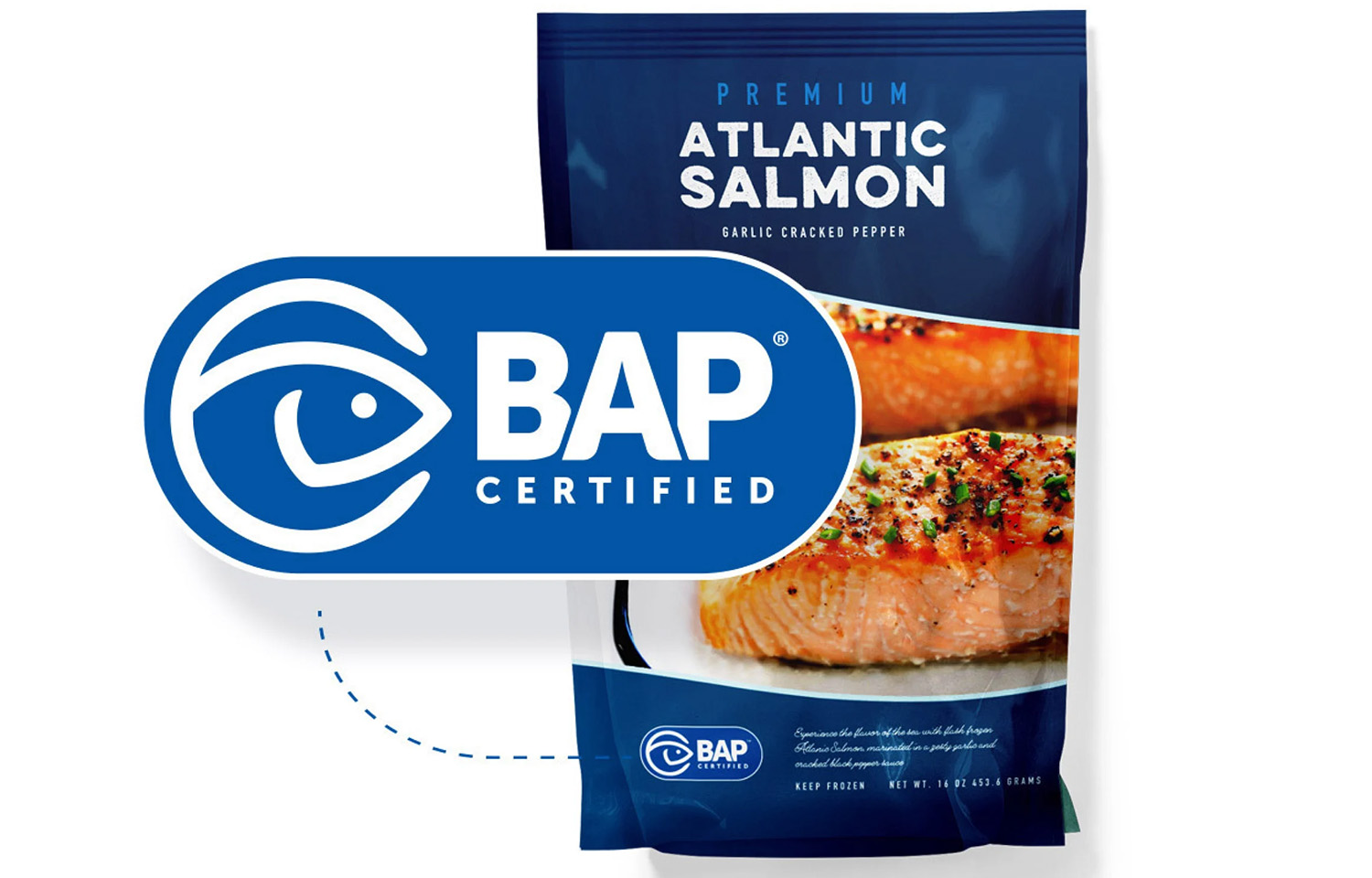A letter signed by more than 70 environmental, animal welfare, and community groups from 18 countries criticizes the Global Seafood Alliance and its new Best Aquaculture Practices certification standard for what the signatories say amounts to greenwashing industrial salmon farming.
The letter, submitted on the final day of the public consultation for BAP Salmon Farm Standard issue 3.0, accuses the BAP standard of having “no meaningful metric limits or performance expectations for certified farms on critical environmental impacts such as sea lice, disease, parasiticides, antibiotics, dissolved oxygen, and endangered, threatened and protected species.”
“There is mounting evidence that environmental harms and human rights abuses are occurring despite the ‘responsible seafood’ claims of BAP and other certifications,” Living Oceans Society Sustainable Seafood Campaigner and SeaChoice Representative Kelly Roebuck said. “The new BAP Standard is no exception. Farms in Chile’s marine protected areas will be eligible for certification; so will farms in Canada, Scotland, and Norway with sea lice loads that are lethal to juvenile wild salmon; as well as Australian farms that are driving the endangered Maugean skate towards extinction.”
According to GSA, the public comment period for the Salmon Farm Standard Issue 3.0 closed 5 May 2024. All comments received during the period will be considered for inclusion in the final draft, individually addressed, and made publicly available on the BAP website. GSA said the Salmon Farm Standard 3.0 Public Draft version was modified to expand the overall comprehensiveness of the standard assessment. Significant changes were made to social responsibility, wildlife, and predator interactions, a GSA spokesperson told SeafoodSource.
“Years of involvement by certification bodies such as BAP, RSPCA Assured, and ASC has not translated into any meaningful improvements in the environmental and welfare performance of open-net salmon farms across the globe,” WildFish Scotland Director Rachel Mulrenan said. “If they are to be credible, certification schemes need to have stringent requirements, which are robustly enforced. Unfortunately, research conducted by WildFish, Living Oceans, SeaChoice and others shows that this is currently not the case. If these schemes aren’t going to properly hold the industry to account, then their existence risks being little more than a greenwashing operation, which misleads consumers and obscures the true cost of this inherently unsustainable industry.”
The letter referenced eight specific examples occurring from 2014 to 2023 where the signatories felt the standards had not lived up to BAP’s claim that it “has strict standards relative to the environment”. Four of the eight examples were from Canada.
“The BAP standard has not done anything to protect wild Atlantic salmon and other wildlife from salmon farms in Atlantic Canada,” Atlantic Salmon Federation Conservation Campaign Director Andrew Clarke. “The licensing and regulatory requirements established by provincial governments in Atlantic Canada are proven to be inadequate, and that is as high as the BAP salmon farm standard reaches.”
After the 60-day public comment period, the draft standard goes to the BAP standards oversight committee consisting of representatives of academia, NGO, and industry experts for approval. According to GSA, the committee’s consideration of comments leads to a final draft that must be approved by the BAP Technical Committee, SOC, and the GSA Board of Directors before implementation.
The letter comes on the heels of a rough few months for seafood eco-labels, including a rocky rollout of Marine Stewardship Council’s 3.0 standard, a critical spotlight on the RPSCA’s certification of Scottish salmon farms, a report from the Outlaw Ocean Project and Corporate Accountability Lab that media reports found problems with MSC, ASC, and BRC social audits of Chinese and Indian seafood processing facilities, and continuing false-labeling lawsuits involving sustainability claims involving seafood certifications.
GSA said it has been investigating the Outlaw Ocean allegations that shrimp producers it certified in India are tied to alleged forced labor and antibiotics use. The organization said it is assessing how improvements "could contribute to a more robust program," and added that no final conclusions on the investigation could be shared at this time.








